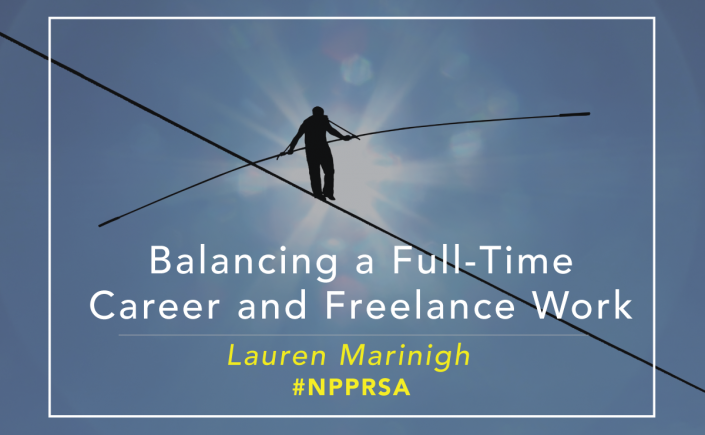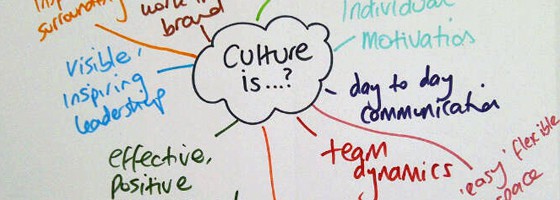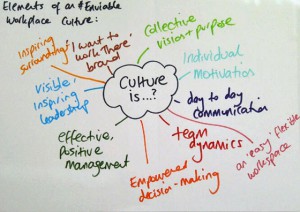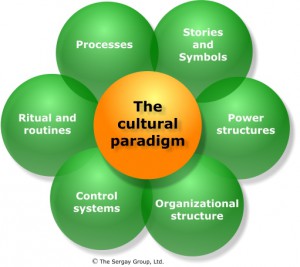“You’re a catalyst to your own happiness, you know.”
That’s what NONONO says in its song “Pumpin Blood,” and that phrase has stuck with me.
With so many factors in the world that we have control of, we have the ability and responsibility to make our happiness a priority.
So how do you stay happy in the hectic and exhausting field of public relations? Think of what you need in a company culture that will make you happy and successful. Yes, you. Not what your parents want for you, what your friends want or what society says you want because you’re a millennial. What’s going to make you enjoy going to work most days? (Let’s be real, nobody wants to go to work all the time.) What will be an environment you can be successful in?
Are you a cubicle-loving, in-house PR person who wants to work in the automotive industry or maybe someone who likes the fast-paced, open-concept agency that works with consumer products?
It’s all up to you.
There are so many factors that contribute to company culture, so think about what motivates you, makes you feel comfortable and helps you thrive. Come up with a list and write it out, though it may seem tedious, so you have something to refer to.
Once you have built out a list of what you’re looking for, rank the items from top to bottom according to the importance of each. It’s likely you’ll have to make compromises when it comes to your list of ideals, which is why you need to determine what matters most. Then, you’ll be able to match that list against employers you’re interested in working for.
At Piper & Gold Public Relations where I work in Lansing, Michigan, we openly communicate about our company culture and what we call our #Truths that shape it. From our familial office relationships to our persistent mentality of always improving, our twelve #Truths lay out how, what and why we do what we do, as well as why it’s enjoyable at the same time. We created them during a team brainstorming session based on what already existed and have lived by them ever since.
I understand not all businesses have #Truths but most have a distinct culture that they’re willing to discuss with you – so do your research and ask questions about company culture before starting a new gig, your happiness and success may rely on it. After all, new professionals aren’t all about happy hours and foosball tables – we want much more than that.
 Hannah Leibinger is an account strategist at Piper & Gold Public Relations, a boutique agency in Lansing, Michigan, that specializes in government, nonprofit and small business public relations. In the Lansing community, she serves as the chair of communications for Grand River Connection, new professionals co-chair and a director at large for the Central Michigan Chapter of PRSA, social media coordinator for Giving Tuesday Lansing and a member of the Old Town Commercial Association business development committee. Connect with her on Twitter (@hleibinger) and LinkedIn.
Hannah Leibinger is an account strategist at Piper & Gold Public Relations, a boutique agency in Lansing, Michigan, that specializes in government, nonprofit and small business public relations. In the Lansing community, she serves as the chair of communications for Grand River Connection, new professionals co-chair and a director at large for the Central Michigan Chapter of PRSA, social media coordinator for Giving Tuesday Lansing and a member of the Old Town Commercial Association business development committee. Connect with her on Twitter (@hleibinger) and LinkedIn.







 process and how we as young professionals often become so focused on how we’re the right fit for the employer that we forget to consider if the company culture is right for us.
process and how we as young professionals often become so focused on how we’re the right fit for the employer that we forget to consider if the company culture is right for us. Job seekers are encouraged to conduct informational interviews with individuals at a prospective employer in order to not only learn about potential openings, but to get a better feel for its company culture as well. Utilize personal connections to get in touch with individuals that also work there and ask for their honest opinions. Be proactive; there’s nothing wrong with cold contacting folks whose information you find on company websites and LinkedIn.
Job seekers are encouraged to conduct informational interviews with individuals at a prospective employer in order to not only learn about potential openings, but to get a better feel for its company culture as well. Utilize personal connections to get in touch with individuals that also work there and ask for their honest opinions. Be proactive; there’s nothing wrong with cold contacting folks whose information you find on company websites and LinkedIn.

